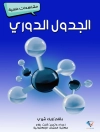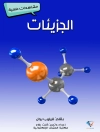Kinase drug discovery remains an area of significant interest across academia and in the pharmaceutical industry. There are now around 13 FDA approved small molecule drugs which target kinases and many more compounds in various stages of clinical development. Although there have been a number of reviews/publications on kinase research, this book fills a gap in the literature by considering the current and future opportunities and challenges in targeting this important family of enzymes. The book is forward-looking and identifies a number of hot topics and key areas for kinase drug discovery over the coming years. It includes contributions from highly respected authors with a combined experience in the industry of well over 200 years, which has resulted in a book of great interest to the kinase field and across drug discovery more generally. Readers will gain a real insight into the huge challenges and opportunities which this target class has presented drug discovery scientists. The many chapters cover a wide breadth of topics, are well written and include high quality colour and black and white images. Topics covered include an outline of how medicinal chemistry has been able to specifically exploit this unique target class, along with reflections on the mechanisms of kinases inhibitors. Also covered is resistance to kinase inhibitors caused by amino acid mutations, case studies of kinase programs and reviews areas beyond protein kinases and beyond the human kinome. Also described are modern approaches to finding kinase leads and the book finishes with a reflection of how kinase drug discovery may progress over the coming years.
Spis treści
An Introduction to Kinase Inhibition;
The Kinome and its Impact on Medicinal Chemistry;
Contemporary Approaches to Kinase Lead Generation;
The Learning and Evolution of Medicinal Chemistry against Kinase Targets;
The Mechanism and Kinetics of Kinase Inhibitors;
Kinase mutations and resistance in cancer;
Non-Protein Kinases as Therapeutic Targets;
The Drug Discovery and Development of Kinase Inhibitors Outside of Oncology;
Allosteric Activators of Glucokinase (GK) for the Treatment of Type 2 Diabetes;
Drug Discovery and Non-Human Kinomes;
The future of kinase drug discovery
O autorze
Dr Richard A Ward is a Computational Chemist, Oncology i Med, at Astra Zeneca, UK. He received his BSc (Hons) in Chemistry with Bio-organic Chemistry at The University of Birmingham and gained a Ph D in Computational Chemistry also at The University of Birmingham, under the supervision of Dr John Wilkie. His experience is in target selection, lead identification, lead generation and lead optimisation against kinase and non-kinase targets with specialisations in fragment-based lead generation along with library design and collection enhancement activities. He has publications in lead generation, virtual screening, druggability assessments, collection enhancement activities using computational ring enumeration along with reagent enhancement and has published supporting papers with a biological focus. He is also named as an inventor on a number of small molecule patents. Dr Frederick W Goldberg is a Medicinal Chemist at Astra Zeneca, UK. He received his MSci (Hons) in Natural Sciences (Chemistry) at Cambridge University and then gained a Ph D in Organic Chemistry at Imperial College, London, under the supervision of Dr Alan Armstrong. Subsequently he completed a Postdoc (Astra Zeneca Fulbright scholarship) at the University of Texas at Austin, USA on 'Formal synthesis of Diazonamide A’, under the supervision of Dr Philip Magnus. He is presently a lead chemist on various kinase and non-kinase targets, working within the oncology lead generation group and diabetes lead optimization groups. He has publications in kinase lead generation and has filed 8 patents as primary inventor.












